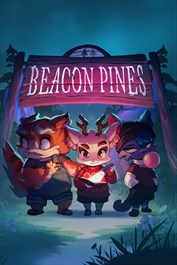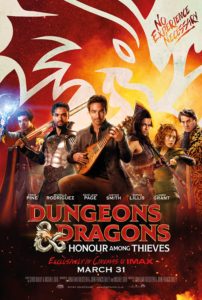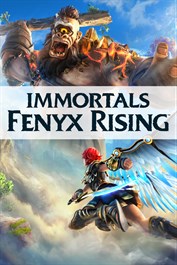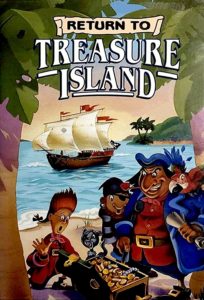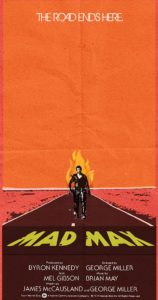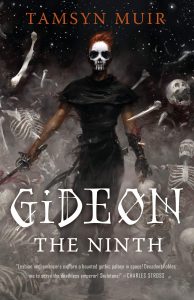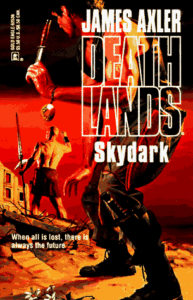 I have a feeling that, with the loss of the original author, there’s at least a decent chance I have something like eighty Deathlands books left to read that all have randomly extruded titles. The somewhat better news is that the new author[1] has a better handle on the characters than in the last book.
I have a feeling that, with the loss of the original author, there’s at least a decent chance I have something like eighty Deathlands books left to read that all have randomly extruded titles. The somewhat better news is that the new author[1] has a better handle on the characters than in the last book.
Skydark does raise a logistical problem as the series gets ever longer. There are only so many years and so much geography in the continental (former) United States, for Ryan Cawdor to have history everywhere they go. Unless we are operating on Marvel time, it’s already straining credulity. Apparent solutions are a) talk about the pasts of the other characters from this time and place or b) continue on with recycled enemies and NPCs occasionally or c) you know, go somewhere and the characters don’t have a history there. And to be fair, b and c already happen with some regularity. Which leaves me sad about the broad absence of a.
This time out, anyway, the band of violent wrong-righters encounters a mutant who for once got himself a fairly beneficial mutation, as a result of which he leads an army of the most terrifying of all human mutations, the stickies, in numbers never before seen. The story is fine[2], but the science part of the science fiction went a bit off the rails, and you can tell that the last two chapters were reserved for the editor fixing some of the logistical and characterization continuity errors that this author introduced into the series.
Which was a relief, as I came into the final stretch of the book prepared to be pretty scathing and concerned about how many of these books I own. But now I think we’ll be back on the rails soon. I approve of gradually more epic plots, as long as the characters and the rules don’t change drastically. It’s a little late in the game for that, is all.
Last thing: I want to give a shoutout to the meaningless blurb phrases on each cover. Like, they’re always the most enigmatic version of a fortune cookie, but this one is just special. “When all is lost, there is always the future.”
I’d say you can’t write this stuff, but objectively, someone could.
[1] Or another, newer author? Ugh. I don’t think I’m going to look it up every single time.
[2] my complaints about Ryan’s overstuffed past notwithstanding
